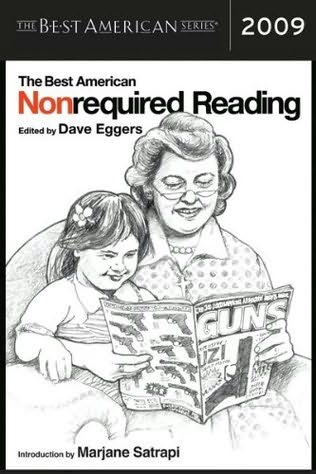 Men and Cartoons is a collection of stories by Jonathan Lethem, who wrote Motherless Brooklyn and Gun with Occasional Music, both of which received positive reviews from this site. The cartoons of the title are not, as the cover art would suggest, the humorous variety that provide connotation to the word "cartoonish," but superhero comics, which appear in various manifestations throughout the nine stories contained here. In that way, Lethem seems to be one of a long string of male postmodern authors intent on deconstructing the comic book, but most of these fall somewhere south of Kavalier and Clay in quality.
Men and Cartoons is a collection of stories by Jonathan Lethem, who wrote Motherless Brooklyn and Gun with Occasional Music, both of which received positive reviews from this site. The cartoons of the title are not, as the cover art would suggest, the humorous variety that provide connotation to the word "cartoonish," but superhero comics, which appear in various manifestations throughout the nine stories contained here. In that way, Lethem seems to be one of a long string of male postmodern authors intent on deconstructing the comic book, but most of these fall somewhere south of Kavalier and Clay in quality.The book starts off very strong with a story called "The Vision," which begins with the narrator recalling a friend of his from grade school who never took off his superhero costume, only to discover that in adulthood the boy (having abandoned his altar ego) has moved in next door. The narrator attends the Vision's party, where they play the party game Mafia. It's a pleasantly melancholy investigation of what games and play mean to adults and children, and Men and Cartoons is at its best when its absurdity and strangeness is complemented by these small, disaffected moments. The best of the bunch are "Vivian Relf," about a man and woman who keeping meeting by accident, and "The Glasses," which is nothing but a conversation between two opticians about why a customer's glasses seem to be smudging all the time.
By contrast, the strangest stories in the compilation usually fall flat, such as "The Dystopianist, Thinking of His Rival, is Interrupted by a Knock at the Door," or "Super Goat Man," about a superhero who upon his retirement takes up teaching at a small Northeastern college. The gimmicks here are clever, but the disconnect from any real human emotion is simply too strong. No wonder, then, that "The Spray" retains that strangeness but works in quite simple a fashion--it's about a spray that creates an image of anything that you have lost or forgotten, whether it be a stolen television set or an ex-boyfriend. (Also, it's the clearest connection that Lethem makes to Philip K. Dick, whose influence seems to be all over the place.) An excerpt:
I jumped up. "If you spray me I'll spray you," I shouted. The spray hit me as I moved across the room. The wet mist fell behind me , like a parachute collapsing in the spot where I'd been, but enough got on me. An image of Lucinda formed, glowing and salmon-colored.
Lucinda was naked. Her hair was short, like when we were together. Her head lay on my shoulder, her arms were around my neck, and her body was across my front. My shirt and jacket. Her breasts were mashed against me, but I couldn't feel them. Her knee was across my legs. I jumped backward but she came with me, radiant and insubstantial. I turned my head to see her face. her expression was peaceful, but her little salmon-colored eyelids were half-open.
"Ha!" said Addie. "I told you it would work."
All in all, not a bad collection, and worth the ninety minutes it might take to read. I wouldn't read it before Motherless Brooklyn, though.




